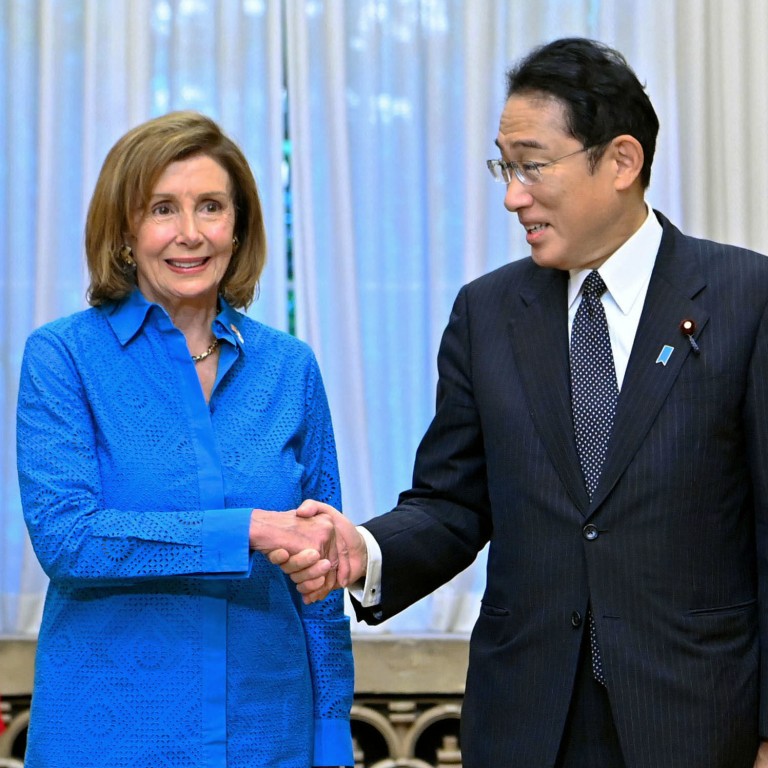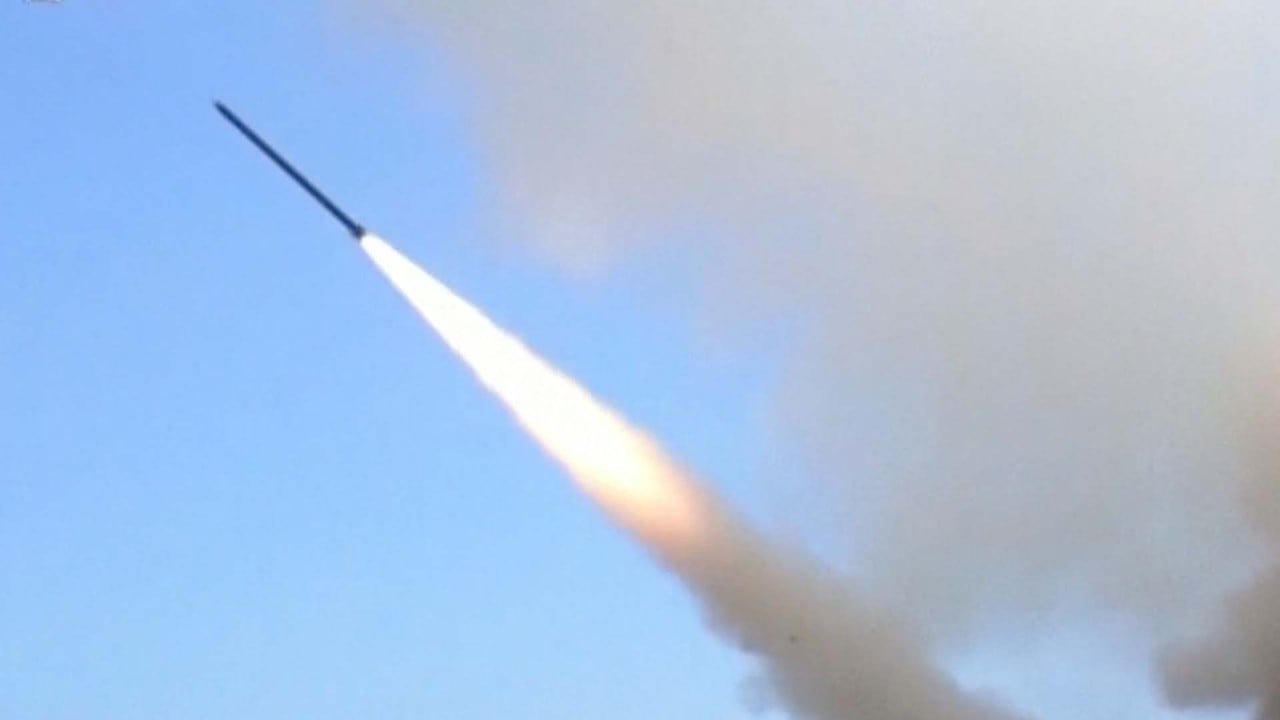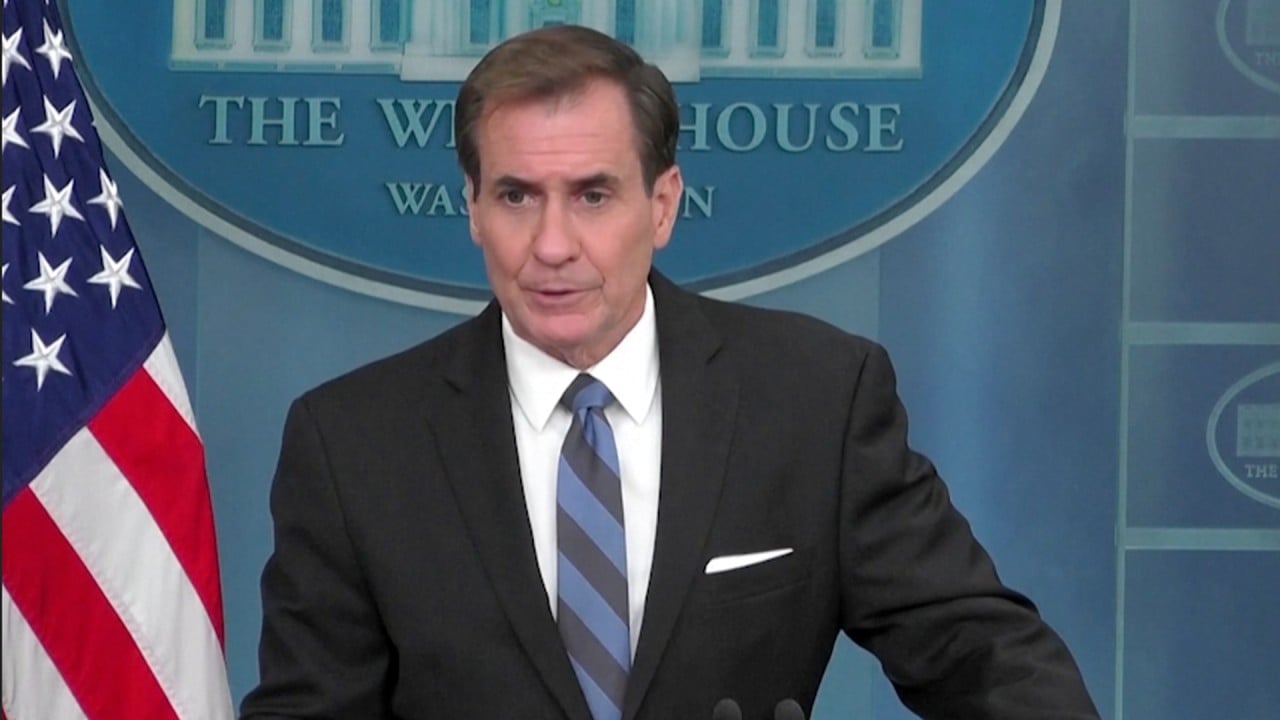
Fumio Kishida walks ‘fine line’ as Japan incurs China’s wrath over Nancy Pelosi’s Taiwan trip
- Days after Beijing axed a meeting with a Japanese official, Tokyo reiterated its commitment to a ‘free and open’ Indo-Pacific and stability in the Taiwan Strait
- While Kishida could have opted for a more dovish position, Japan had no choice but to express displeasure when Chinese missiles fell inside its EEZ, one analyst notes
Yet as the US congresswoman’s East Asia tour winds down, it is apparent that Japan has been by far the firmest advocate of Washington’s position on Taipei, and the most willing to criticise Beijing for what Tokyo increasingly sees as the economic and military bullying of the island.
Yoon and Pelosi spoke by phone while she was in Seoul, but the JoongAng Daily said this was not an adequate diplomatic welcome for a representative of the South’s most important security partner.
Kishida, however, rolled out the red carpet after Pelosi arrived at the US military’s Yokota air base in western Tokyo late on Thursday.
Asean urges restraint as China holds war games after Pelosi’s Taiwan trip
On Friday, the representatives of China and Russia walked out of a meeting at the Asean event when the Japanese official began an address.
“I think Pelosi made a wrong and rather foolish decision to visit Taiwan, and I’m not sure why she’s being so provocative with this visit to Asia,” said Akitoshi Miyashita, a professor of international relations at Tokyo International University.
Japan outlines concerns over rising China-Russia cooperation amid Ukraine war
“I think the nationalist elements in Japan’s Liberal Democratic Party will be happy that Pelosi has been to Japan, but Kishida is walking a very fine line,” Miyashita said. “I also think the majority of countries in the region tacitly support Taiwan, but they have been very careful not to say anything that Beijing might interpret as being critical.
“In the circumstances, that might have been the best course of action for Kishida as well,” he said, although he conceded that Tokyo had no choice but to express displeasure when Chinese missiles fell inside Japan’s EEZ.
Yakov Zinberg, a professor of international relations specialising in East Asian affairs at Tokyo’s Kokushikan University, expressed less surprise at the firm line Kishida had taken towards China, although he said it may not sit entirely comfortably with the prime minister.
“My sense is that there is inertia in the government here since Abe was killed, with the party no longer sure on some of its policies or direction,” he said. “Kishida is more of a dove in the party and is known to have close ties with China before being elected prime minister.
“It is possible that in the future, when things have calmed down, Kishida may reconsider some of Abe’s policies that have simply been continued under this government,” he said. “At the very least, Kishida is going to do everything he can to de-escalate the situation.”
Beijing’s war games after Pelosi’s Taiwan trip spark South China Sea concerns
But Go Ito, a professor of international relations at Tokyo’s Meiji University, suggests that the ball is now largely in Beijing’s court.
“Pelosi is returning to the US now and everyone obviously hopes that we will go back to how things were before,” he said. “But a small action by either side right now could have very big repercussions. If China believes its anger was not sufficiently understood, then it might choose to take one more step.”
That “step” might involve a seizure of one of Taiwan’s outlying islands, Ito suggested.
“But if China goes beyond the status quo, there will have to be a response from Taiwan, from the US and from Japan,” he said. “And Japan has already stated that a crisis across the Taiwan Strait will be a crisis for Japan, so there will have to be a response.”



